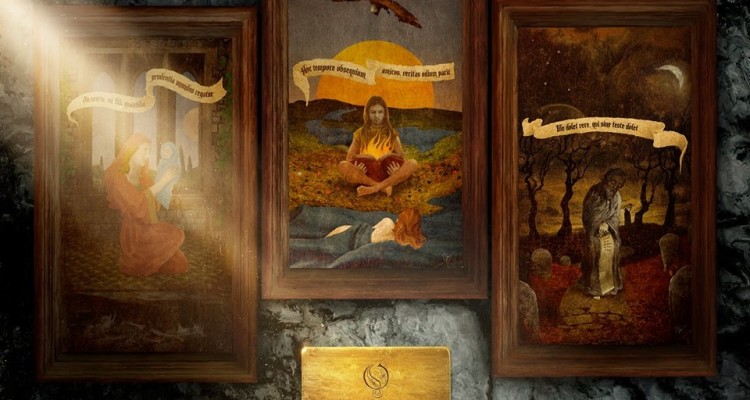Opeth has frequently been hailed as a staple of the metal genre, with a wildly successful career spanning 25 years and 11 studio albums. On their previous records, the Swedish band fronted by multi-instrumentalist Mikael Akerfeldt, effortlessly blended heavy metal, progressive rock and jazz fusion. Much to the behest of their massive fan base, the group has recently began to push away from their heavy metal roots and instead emulate the progressive rock bands of the 1970s.
Their latest release, “Pale Communion,” is the best representation of Opeth’s new direction: a musical journey interlaced with moments of subtle beauty, without the heavier passages that may have turned off the average listener.
Within the opening track alone, one can find the influence of legendary bands such as Genesis, Yes, Pink Floyd and Jethro Tull. “Eternal Rains Will Come” is easily a highlight of the album, with each band member spending time in the spotlight during the whirlwind instrumental introduction. Akerfeldt’s richly layered vocal harmonies immediately grab listeners as the song soon transitions into a typical verse-chorus format. The opener is followed up by the album’s single, “Cusp of Eternity,” which is arguably the most accessible song of “Pale Communion.”
The band remains tight and cohesive throughout the song’s fast-paced grooves before launching into a frenzied guitar solo. Unfortunately, cohesiveness is nowhere to be found on “Moon Above, Sun Below” – it’s as if the band loosely connected several shorter songs into an 11-minute package. The song’s few memorable riffs and verses are awkwardly strung together between misplaced acoustic passages which trade Akerfeldt’s soaring vocals with simple whispers. The first half of the album closes with “Elysian Woes,” a melancholic song in which Opeth recalls the soft, yet morose sound of their 2003 album “Damnation.”
The second half of “Pale Communion:is an eclectic and diverse group of songs. “Goblin” is essentially an instrumental palette-cleanser, giving the listeners a break from Akerfeldt’s occasionally melodramatic lyrics. Yet, another highlight of the album is “River,” a song that seamlessly blends strong folk influences with progressive rock’s sense of pacing. It’s also surprisingly upbeat, which is completely unheard of within Opeth’s discography, thus representing a true leap out of their comfort zone. Following the cinematic grandiosity of “Voice of Treason,” Opeth ends the album on an extremely bleak note with the masterpiece “Faith in Others.” This song manages to capture despair, mourning and helplessness without being cliché, relying mainly on the string section’s haunting presence. “Faith in Others” is sure to stand out as one of Opeth’s best written songs, delivering a major emotional impact as the album fades into silence.
Opeth’s “Pale Communion” is certainly a worthwhile listen for fans of classic rock with a very pretentious, maximalist approach. The album is sure to satisfy musicians of any genre – it’s the perfect example of a band who can re-imagine their sound, without compromising their immense musical abilities. While it may not please the fans of Opeth’s heavy metal past, “Pale Communion” is a stunning display of musicianship and beauty that deserves your listen.


Leave a Reply